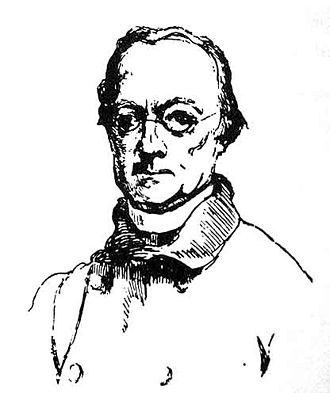Charles Étienne

Abbé Charles-Étienne Brasseur de Bourbourg (8 September 1814 – 8 January 1874) was a noted French writer, ethnographer, historian, archaeologist, and Catholic priest. He became a specialist in Mesoamerican studies, travelling extensively in the region. His writings, publications, and recovery of historical documents contributed much to knowledge of the region’s languages, writing, history and culture, particularly those of the Maya and Aztec civilizations. However, his speculations concerning relationships between the ancient Maya and the lost continent of Atlantis inspired Ignatius L. Donnelly and encouraged the pseudo-science of Mayanism.
He was born in Bourbourg, a small town with many Flemish influences near Dunkirk, France, as the First French Empire was ending.
As a youth he went to Ghent in newly independent Belgium to study theology and philosophy. He became interested in writing during his studies there. Enthusiastic about Flanders’ history, he wrote several essays about local folklore, which enabled him to enter literary circles. In 1837 aged 23, Brasseur traveled to Paris with supported by French poet Alphonse-Marie-Louis de Prat Lamartine’s, and became involved with political newspapers that sought the democratization of power such as Le Monde.[1] During this time, he began contributing essays to a Parisian journal. He wrote several historical accounts (using a pseudonym), including one concerning Jerusalem. He published several novels of Romantic style which was then very much in vogue. One of these, Le Sérapéon, received reviews which implied it had a very close resemblance to François-René de Chateaubriand’s 1809 novel Les Martyrs. Such near-allegations of plagiarism and inaccuracies in his works were to be made several times during his career.
Despite such criticisms, his reputation as a notable young writer and intellectual continued to develop. He transferred his studies and residence to Rome, where in 1845 he was ordained into the Roman Catholic priesthood, at the age of 30.
A year previously he had come to the attention of the Canadian Abbé, Léon Gingras, whom he had met (and apparently impressed) in Rome. Abbé Gingras entreated his friend and colleague the vicar-general of Quebec, Abbé Charles-Félix Cazeau, to have Brasseur de Bourbourg assigned to a job in the seminary there. Correspondence began in late 1844, with Abbé Gingras claiming that the seminary should “…move heaven and earth to ensure that such a splendid bird does not escape us and fly to Montreal, where it would be so highly thought of”.
A year later after having obtained his ordination, Brasseur de Bourbourg’s job in Quebec was approved by the Archbishop, Joseph Signay, and in the autumn of 1845 he left Europe for the British colony of the Province of Canada, stopping briefly in Boston along the way.
Upon his arrival in Quebec City he began work as a professor of ecclesiastical history at the seminary (the Séminaire de Québec, founded in 1663). After only a brief time however, his series of lectures was discontinued, for some unspecified reason.
Perhaps having extra time, Brasseur de Bourbourg began a programme of research of the history of the archdiocese of Quebec, and in particular of its 17th-century founder, François de Laval, the first Roman Catholic Bishop of Quebec (after whom the seminary’s later incarnation as a University, the Université Laval, is named). The results of his archival investigations were published in early 1846 as a biography of Laval. The contents of this pamphlet seemed to displease his Canadian colleagues somewhat, for a dispute began which made his position there uncertain, or at least uncomfortable. Also, he apparently disliked the harsh winter climate (to judge by some comments he made in the dedication of his later History of Canada), and may also have been a factor in his departure which was soon to ensue.
He left the seminary later in that year, returning to Boston where he found a job with the diocese of Boston. The then current bishop, John Bernard Fitzpatrick, with whom he was evidently on better terms than with his previous superiors, made him vicar-general of the diocese.
Towards the end of the year Brasseur de Bourbourg returned to Europe, to spend some time conducting research in the archives of Rome and Madrid, in preparation for a new project—travel to Central America.
